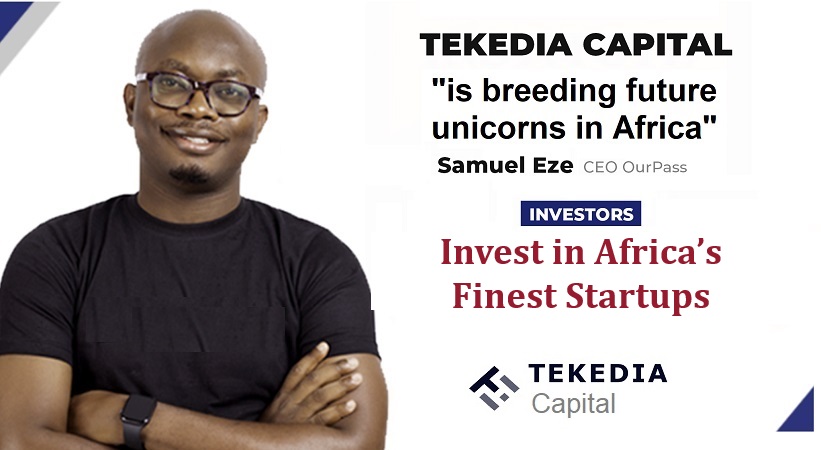News
What is the best method to invest in cryptocurrencies?

Coinbase and Robinhood are two of the most popular places to trade cryptocurrencies, but which one is best for you? The answer depends on your needs, especially on how much cryptocurrency trading you intend to do and the costs you are willing to pay.
Coinbase and Robinhood may appeal to different types of traders, although there is likely to be significant overlap. CoinBase is a cryptocurrency exchange that deeply caters to traders in the world of digital currencies. In contrast, Robin Hood is a trading app that allows users to buy and sell stocks, ETFs, options, and some types of cryptocurrencies without any out-of-pocket costs.
Both companies have faced scrutiny from regulators in recent years. THE The Securities and Exchange Commission sued Coinbase in June 2023, alleging that it illegally operated as an exchange, broker-dealer, and clearing house, and that it offered and sold unregistered securities. The lawsuit alleged that Coinbase knowingly violated securities laws designed to protect investors. Coinbase said it will continue business as usual.
In 2020, Robinhood agreed to pay $65 million to settle SEC charges that it deceived customers about payments it received from trading firms for sending customer orders to them. The SEC found that customers received trade prices that were lower overall by $34.1 million even after accounting for the lack of commissions. Robinhood neither admitted nor denied the SEC’s findings.
Here’s how Coinbase and Robinhood differ in a few other key aspects.
Coinbase vs Robinhood: cost
The fee structure on Coinbase and Robinhood is significantly different, and it doesn’t help that Coinbase intentionally obscures much of its fee structure from potential customers (even if it discloses them before actually placing a trade). That said, Robinhood isn’t exactly straightforward about how it is compensated.
Robinhood’s fee structure is simple, compared to Coinbase’s. In line with the stock and options broker’s “no commission” model, you will not pay any costs directly out of pocket for buying and selling cryptocurrencies. Instead, the cost of the trade is actually converted into a markup of the spread on the trade. So you will actually pay more when you buy and receive less when you sell than if you receive the best market price at the time of the transaction.
Coinbase’s fee structure is confusing to say the least. Not only does it charge variable fees based on the amount purchased, but it has a basic service tier and an advanced tier, each of which has different fees. And Coinbase recently started obscuring fees for its basic service, making it difficult for potential customers to see how much they’re paying (spoiler alert: Prices are high if you just buy a little cryptocurrency at the basic level. )
For smaller trades, you will pay a spread markup of 0.5% of the trade value plus a fixed fee based on the size of the trade.
Coinbase’s fee structure
|
$10 or less |
$0.99 |
|
More than $10 and up to $25 |
$1.49 |
|
More than $25 and up to $50 |
$1.99 |
|
More than $50 and up to $200 |
$2.99 |
At the lowest levels, around $10, you’ll pay a fee that eats up nearly 10% of your purchase. But even at $200, you’re still paying a hefty 1.5% or so. And this is in addition to the 0.5 margin spread already taken into account in the purchase or sale price.
For purchase amounts over $200, you are still paying that 0.5% spread margin while a variable fee depends on your source of funds.
Coinbase funding fees
|
ACH |
Free |
|
Bank Transfer (USD) |
$10 filing fee; $25 withdrawal fee |
|
Debit card |
3.99%. |
If you choose to use Coinbase Advanced, the company’s highest level of service, you’ll be able to get lower overall fees, even if you trade with smaller amounts. Coinbase Advanced is more clear about these fees, but the structure is scaled and depends on whether you are adding liquidity (where the fee ranges from 0 to 0.4% of trade value) or taking liquidity (with fees ranging from 0 .05 to 0.6%).
Advantage: Robinhood, for the simplicity of its fee structure, even if its information is no better than that provided by Coinbase.
Coinbase vs. Robinhood: Coins available for trading
Coinbase supports trading in more than 200 different cryptocurrencies, including the largest ones like Bitcoin, Ethereum, Cardano, Solana, Dogecoin, and more. So, you’ll probably find what you’re looking for and also a lot of what you’re not looking for. Of course, Coinbase doesn’t deliver thousands of other much smaller digital currenciesbut this will matter to almost no one except niche traders.
In contrast, Robinhood allows users to trade only 15 digital currencies: Aave, Avalanche, Bitcoin, Bitcoin Cash, Chainlink, Compound, Dogemoneta, Ethereum, Ethereum Classic, Litecoin, Shiba Inu, Stellar Lumens, Tezos, Uniswap and USD Coin. However, the app offers traders access to real-time data on these cryptocurrencies and others.
Advantage: Coinbase, for its much wider range of coins available.
Coinbase vs. Robinhood: Types of Securities Offered
When it comes to the type of securities offered, Coinbase is still cryptocurrency. If you want something else… actionsETFs, options – you’ll have to find them elsewhere.
In contrast, Robinhood offers a broader range of securities, including stocks, options, ETFs and cryptocurrencies, although it does not offer bonds or mutual funds. However, the app will attract many traders with what it offers, so it can appeal to a large audience even with a shallower cryptocurrency pool.
Advantage: Robinhood, for its wider range of offerings.
Coinbase vs. Robinhood: Cryptocurrency Custody
If you’re looking to manage the custody of your crypto assets yourself, Coinbase is probably your best bet. The exchange offers its own wallet, but you can also store assets yourself via your wallet. You will then be able to choose the solution that best suits your needs, whether you are looking for a hardware wallet or a software wallet or you just want to leave it with Coinbase for trading.
Robinhood offers Robinhood Wallet as a separate app from the main Robinhood platform. The app is a self-custodial wallet that acts as a portal to store and manage your cryptocurrencies on networks like Ethereum or Bitcoin.
Advantage: Coinbase has the advantage here of offering more options. However, if you intend to trade frequently, this matters less.
Coinbase vs. Robinhood: Staking Rewards
Coinbase and Robinhood also differ significantly in terms of cryptocurrency staking, a process through which cryptocurrency owners receive income from their holdings. Staking is like earning interest on a bank account, albeit with significant differences and risks.
With Coinbase, users can stake their crypto assets, which are then used to validate transactions on a given currency’s blockchain. Currently, customers can earn staking rewards on dozens of cryptocurrencies, including Ethereum, Tron and Cardano. Coinbase takes care of the technical details behind the scenes, and you earn additional coins by keeping your assets there.
Robinhood offers bets on Solana only starting in May 2024.
Advantage: Coinbase, to offer staking rewards on multiple coins.
Bottom line
Which company is best for you ultimately depends on your needs, but it’s fair to say that those who focus heavily on cryptocurrency or many types of cryptocurrency will find Coinbase a better fit. On the other hand, those who are interested in some popular crypto coins as part of a larger portfolio may prefer Robinhood and may also want to check out rivals Webullwhich also offers cryptocurrency trading.
Editorial Disclaimer: All investors are advised to conduct their own independent research on investment strategies before making an investment decision. Furthermore, investors are advised that past performance of investment products is no guarantee of future price appreciation.
News
US Cryptocurrency Rules Delayed by ‘Never-Ending’ Lawsuits

Ripple CEO says cryptocurrency industry still seeking regulatory clarity from US
Speaking to Bloomberg News on Wednesday (July 17), Author: Brad Garlinghouse he said America is behind behind other countries which have already adopted cryptocurrency regulations.
“What we’re seeing, where it’s the UK, Japan, Singapore… even the European Union, more than two dozen countries have come together to provide a framework for cryptocurrency regulation,” Garlinghouse said.
“It’s frustrating that we as a country can’t get that regulatory framework in place. And instead, we have this never-ending lawsuit coming from the SEC that doesn’t really address the problem.”
Ripple has been the target of some of these legal disputes. Securities and Exchange Commission (SEC) sued the company in 2020, accusing it of conducting a $1.3 billion operation offering of unregistered securities tied to its XRP token.
However, last year a judge ruled that only Ripple’s institutional sales of XRP, not retail sales, violated the law, a decision widely seen as a victory for the cryptocurrency industry.
As PYMNTS noted at the time, that ruling has “far-reaching repercussions impact across the digital asset ecosystem, which has long maintained that its tokens do not represent securities contracts.”
However, Garlinghouse told Bloomberg on Wednesday that the company cannot wage multimillion-dollar legal battles over each token.
He spoke to the news agency from the Republican National Convention in Milwaukee, where the party is backing the candidacies of former President Donald Trump and Ohio Sen. J.D. Vance, both of whom are considered pro-cryptocurrency.
But Garlinghouse argued that cryptocurrencies “should not be a partisan issue,” and noted that he had recently attended a conference in Washington that included Democrats, including White House officials.
“I think they were there, listening to the industry… it was refreshing to start having that conversation,” she said.
President Joe Biden earlier this year he vetoed a measure which would have ended the SEC’s special rules for crypto-asset custodians. This legislation was supported by both the digital asset industry and the banking industry.
Ripple early this year donated $25 million to the cryptocurrency industry’s super PAC Fair Smoothiewith Garlinghouse stating at the time that such donations would continue every year, as long as the industry had its detractors.
Second Open SecretsWhich monitor spending For campaigns, the PAC has spent $13.4 million this year, much of it to help defeat Rep. Katie Porter’s (D-Calif.) U.S. Senate campaign.
News
The Future of Cybersecurity in the Cryptocurrency Industry

The cryptocurrency space has had a tumultuous journey, with its fair share of ups and downs. As we look to the future, one area that remains a constant focus is cybersecurity. The digital nature of cryptocurrencies makes them inherently vulnerable to cyber threats, and as the industry evolves, so does the landscape of potential risks.
In 2022, the cryptocurrency market faced significant challenges, with over $2 trillion in market value lost. This event served as a wake-up call for the industry, highlighting the need for robust cybersecurity measures. The future of cryptocurrency security is expected to see a shift towards more regulated and established institutions taking the reins of crypto technology and blockchain infrastructure.
The decentralized nature of cryptocurrencies offers numerous benefits, such as transparency and financial inclusion. However, it also introduces unique security challenges. The risk landscape is filled with threats such as hacking, phishing, ransomware attacks, malware, and social engineering. These threats not only lead to financial losses, but also damage the reputation and trust within the cryptocurrency ecosystem.
Mini-MBA Tekedia edition 15 ((September 9 – December 7, 2024) started recordings; Register today for discounts reserved for early bird customers.
Tekedia AI in Business Masterclass Opens registrations Here.
Join the Tekedia Capital Syndicate and IInvest in Africa’s best startups Here.
The decentralized nature of cryptocurrencies offers many benefits, but it also presents unique security challenges. Cyber risks such as hacking, phishing, and ransomware pose threats to the integrity of digital assets. The infrastructure that supports cryptocurrencies is not immune to vulnerabilities, including smart contract flaws and exchange hacks.
To address these vulnerabilities, the infrastructure that supports cryptocurrencies must be strengthened. Smart contract vulnerabilities, exchange hacks, wallet breaches, and flaws in the underlying blockchain technology are significant concerns that must be addressed to ensure the security and integrity of digital assets.
As cybercriminal tactics and techniques become more sophisticated, the cryptocurrency industry must stay ahead of the curve. The future will likely see more targeted attacks, exploiting weaknesses in infrastructure, networks, and human factors. This requires a proactive and multifaceted approach to cybersecurity.
To mitigate these risks, several measures must be adopted:
Strengthening security measures: Developers, exchanges, and wallet providers must improve security protocols, use strong encryption, implement multi-factor authentication, and conduct regular security audits.
Education and awareness: Users should be educated on best practices for protecting their digital assets, including using strong passwords, recognizing phishing attempts, and using hardware wallets for secure storage.
Looking ahead, the cryptocurrency industry is expected to see an increased focus on robust security measures. Blockchain projects and exchanges are likely to invest in advanced encryption techniques and decentralized storage solutions to protect user assets. The future impact of cyber risk on cryptocurrencies will depend on the collective efforts of stakeholders to address vulnerabilities and strengthen security measures.
Collective efforts by stakeholders in the cryptocurrency space are crucial to address vulnerabilities and strengthen security measures. While challenges persist, advances in cybersecurity technologies and practices offer hope for a more secure and resilient cryptocurrency ecosystem.
The future of cybersecurity in the cryptocurrency industry depends on finding a balance between innovation and regulation. It requires a collaborative effort from all parties involved, from developers to end users, to create a secure environment that fosters trust and growth in the industry. As we move forward, it is critical that lessons learned from past events guide the development of stronger security measures, ensuring the longevity and stability of cryptocurrencies as a vital part of the modern economic toolkit.
Like this:
Like Loading…
News
Bullish XRP and RLBK price predictions rise, outpacing the broader cryptocurrency market, prompting Shiba Inu holders to switch!

Bitcoin’s one-week surge from $60,000 has pushed other cryptocurrencies into an uptrend. However, for many altcoins, this trend has been temporary. Altcoins such as XRP and Shiba Inu (SHIB) have experienced price drops. However, Rollblock, a new altcoin on the Ethereum blockchain, has thrived during this period, attracting thousands of investors looking for long-term growth.
XRP’s Nearly 30% Growth Over Last Week Drops as Selling Pressure Increases
XRP is seeing further price decline as Ripple investors withdraw their profits from the token. The surge in XRP’s price to $0.64 in the past week has provided investors with a perfect opportunity to increase their returns in the short term. With the ongoing sell-off in XRP, XRP has jumped over 8% in the past day and is now trading at $0.59. However, analysts tracking XRP indicators predict that XRP could still extend its gains by over 30% in the coming weeks.
Shiba Inu (SHIB) marks its third consecutive day of losses
Shiba Inu (SHIB) is in a period of adjustment after a week of strong gains. In the last 24 hours, SHIB has seen a jump of over 7%, reflecting a natural market fluctuation. Analysts are observing a death cross on the Shiba Inu chart, which historically signals the potential for future opportunities as the market stabilizes. As investors explore new possibilities, some are diversifying into promising altcoins like Rollblock (RBLK) to strategically rebalance their portfolios and capitalize on the emerging trend.
Rollblock (RBLK) Up Another 7% as New Investors Join Pre-Sale
Rollblock (RBLK) has taken the cryptocurrency market by storm, having attracted investors from more popular altcoins like Shiba Inu (SHIB) and XRP. Rollblock’s growth is attributed to its utility in the $450 billion global gaming industry.
Rollblock aims to use blockchain technology to bridge the gap between centralized and decentralized gambling. With blockchain technology, Rollblock secures every transaction in its online casino, providing transparency and convenience to millions of players who are uncomfortable placing bets on other iGaming platforms.
This innovative use of blockchain technology in the industry has grown Rollblock to over 4,000 new users in less than two months. With plans to add sports betting, this number is expected to grow exponentially in Q3.
Rollblock uses a revenue sharing model that splits up to 30% of its casino’s weekly profits with token holders. This happens after Rollblock buys back $RBLK from the open market and uses half of it for rewards. The other half is burned to increase the price of $RBLK.
Rollblock price has seen four increases in the past month with $RBLK tokens now selling for $0.017. Analysts predict that at the current growth rate, Rollblock could increase by over 800% before the presale ends. For investors looking for a long-term token with growth potential, phase four is the best time to buy Rollblock before its price skyrockets!
Discover the exciting Rollblock (RBLK) pre-sale opportunities now!
Website:https://Rollblockpresale.io/
Social: https://linktr.ee/Rollblockcasino
No spam, no lies, just insights. You can unsubscribe at any time.
News
Texas Crypto Miners Turn to AI as Crypto Declines

As cryptocurrency mining becomes less profitable, Texas cryptocurrency mining companies are switching to supporting artificial intelligence companies.
Bitcoin miners, with their sprawling data centers and access to significant energy resources, are ideally suited for computationally intensive AI operations, and as cryptocurrency mining becomes less profitable, companies see this shift as a logical answer to their problems.
On Thursday, Houston-based Lancium and Denver-based Crusoe Energy Systems announced a multibillion-dollar deal to build a 200-megawatt data center near the West Texas city of Abilene to support advanced artificial intelligence applications such as medical research and aircraft design, CNBC reported. The plant represents the first phase of a larger 1.2 gigawatt project.
Lancium and Crusoe’s move into AI mirrors a broader trend among bitcoin miners. The combined market capitalization of the top U.S.-listed bitcoin miners hit a record $22.8 billion in June. Companies like Bit Digital and Hut 8 are diversifying into AI, with Bit Digital securing a $92 million annual revenue deal to supply Nvidia GPUs and Hut 8 raising $150 million to expand its AI data center.
But the growing popularity of these operations also presents challenges, particularly for the Texas power grid. Last month, the Electric Reliability Council of Texas announced that the state is expected to nearly double its energy production by 2030 to meet the high energy demands of data centers and cryptocurrency operations.
Lieutenant Governor Dan Patrick expressed concern about the projections.
“Cryptocurrency miners and data centers will account for more than 50% of the additional growth. We need to take a close look at these two sectors,” He wrote on Twitter/X. “They produce very few jobs compared to the incredible demands they place on our network. Cryptocurrency miners could actually make more money selling electricity to the network than they do from their cryptocurrency mining operations.”
Analysts predict significant growth in data center power capacity, which is expected to account for up to 9% of U.S. electricity consumption by 2030.
The operations also pose challenges for nearby cities. Earlier this month, TIME reported that a crypto-mining facility was seriously compromising the health of residents in the city of Granbury. TIME reported more than 40 people with serious health problems, including cardiovascular disease, high blood pressure and hearing loss. At least 10 of the residents needed to go to the emergency room or an urgent care facility.
The disturbances were caused by the extreme noise generated by the crypto-mining facility’s fans, which are used to keep the machines cool. While the proposed data center in Abilene would use liquid cooling systems, it’s still unclear whether the facility’s operations would pose a health risk to local residents.
-

 Nfts1 year ago
Nfts1 year agoShardLab Launches ZK-Based Tool for Digital Identity and NFT Vouchers
-

 News1 year ago
News1 year agoWallet recovery firms are abuzz as stranded cryptocurrency investors panic in the bitcoin boom
-

 Bitcoin1 year ago
Bitcoin1 year agoBitcoin, Ethereum, Solana and Cryptocurrency Markets Look Ready to ‘Send’ as Stars Align, According to Investor Chris Burniske
-

 Altcoins12 months ago
Altcoins12 months agoThree Altcoins Poised for Significant Growth in 2024: ETFS, OP, BLAST
-

 Altcoins12 months ago
Altcoins12 months agoAccumulate these altcoins now for maximum gains
-

 Nfts1 year ago
Nfts1 year agoOG Crypto Artist Trevor Jones Unveils Groundbreaking Collection of Ordinals | NFT CULTURE | NFT News | Web3 Culture
-

 Bitcoin1 year ago
Bitcoin1 year agoBillionaires are selling Nvidia stock and buying an index fund that could rise as much as 5,655%, according to some Wall Street analysts
-

 Videos9 months ago
Videos9 months agoKamala just won the boner! [Bad For Crypto]
-

 Videos1 year ago
Videos1 year agoLIVE FOMC 🚨 Could be CATASTROPHIC for Altcoins!
-

 News1 year ago
News1 year agoA Guide for Newcomers & Beginners – Forbes Advisor
-

 Videos1 year ago
Videos1 year agoAttention: a historically significant BITCOIN signal has just appeared!
-

 Videos1 year ago
Videos1 year agoSTOCK MARKET FUD! ⚠️ [Why This Is GREAT For Bitcoin Traders!]



















